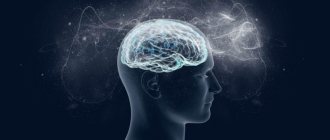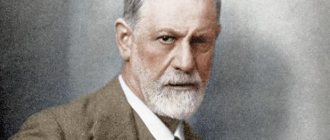What are emotions in psychology? People's emotions list. Affects. Feelings. Mood. Definitions. The structure of experiences. Sex and orgasm. A product of evolution.
Hello, dear readers!
In this article we will examine an important mental element - EMOTIONAL EXPERIENCES . It would seem that everyone has heard this phenomenon and seems to be something familiar and simple. However, the denotation of this expression in the scientific picture of the world is somewhat different from the denotation in the naive model of the world, widespread everywhere. In order to exclude false interpretation of the linguistic structure - emotional experiences, I will try to talk in simple language about the essence of the phenomenon. So let's get started.
How is it considered in psychology?
In the psychological literature there are different interpretations and views on the feelings of experience. There are two views on emotional experiences as a psychological phenomenon:
- Study of feeling based on the emotional sphere.
- Experience allows a person to overcome various situations during which the inner world changes.
For some authors, feeling is closely related to emotions. Any emotional experience is associated with life events and has a vivid psychological overtones.
Other authors distinguish between emotions and experiences; for them, the second state is a separate process associated with the reflexive part of a person. The most famous work on this topic was presented by F. E. Vasilyuk in his book “Psychology of Experiences.”
Let's consider different aspects of this complex mental phenomenon.
S.L. Rubinstein. Types of emotional experiences Added by Psychology OnLine.Net 03/25/2007 In the diverse manifestations of the emotional sphere of the individual, three main levels can be distinguished. The first is the level of organic affective-emotional sensitivity. This includes elementary, so-called physical feelings - pleasures, displeasures, associated primarily with organic needs. Feelings of this kind may have a more or less specialized local character, acting as an emotional coloring or tone of a separate process of sensation. They can also acquire a more general, diffuse character; expressing the general, more or less diffuse organic well-being of the individual, these emotional states are non-objectified in nature. An example would be a feeling of pointless melancholy, the same pointless anxiety or joy. Each such feeling reflects the objective state of an individual who is in a certain relationship with the outside world. And “objectless” anxiety can be caused by some object; but although his presence caused a feeling of anxiety, this feeling may not be directed towards him and the connection of the feeling with the object that objectively caused the feeling may not be realized. <…> The next, higher level of emotional manifestations consists of objective feelings corresponding to objective perception and objective action. The objectification of a feeling means a higher level of its awareness. Pointless anxiety is replaced by fear of something. A person may be “generally” anxious, but people are always afraid of something, just as they are surprised by something and love someone. At the previous level - organic affective-emotional sensitivity - the feeling directly expressed the state of the organism, although, of course, the organism was not isolated, but was in certain real relationships with the surrounding reality. However, the attitude itself was not yet the conscious content of the feeling. At the second level, feeling is nothing more than an expression in the conscious experience of a person’s relationship to the world. <…> The objectification of feelings finds its highest expression in the fact that the feelings themselves are differentiated depending on the objective sphere to which they relate. These feelings are usually called objective
feelings and are divided into
intellectual, aesthetic
and
moral.
The value and quality level of these feelings depends on their content, on what attitude and to what object they express.
This attitude always has an ideological meaning. <…> Finally, above objective feelings (admiration for one object and disgust for another, love or hatred for a certain person, indignation at some act or event, etc.) more generalized feelings rise (similar in level of generality to abstract thinking), such as : sense of humor, irony, sense of the sublime, tragic, etc. These feelings can also sometimes act as more or less private states, confined to a specific case, but for the most part they express general, more or less stable ideological attitudes of the individual. We would call them worldview feelings. Already the sense of the comic, with which neither humor nor irony can be confused, contains the intellectual element as a social component. The feeling of the comic arises as a result of a suddenly revealed discrepancy between the apparent significance of the character and the insignificance, clumsiness, and general absurdity of his behavior, between behavior designed for a more or less significant situation, and the trivial nature of the situation in which it occurs. What seems comical and funny is that which first appears with the appearance of superiority and then reveals its inconsistency. The incongruity or absurdity usually contained in the comic does not in itself create this impression. For a sense of comedy to arise, an unfounded claim must be exposed before a person’s eyes <…> Much more complex than the sense of the comic are humor and irony. Humor
assumes that behind the funny, behind the flaws that cause laughter, something positive and attractive is felt.
They laugh with humor at the shortcomings of their loved one. Humor combines laughter with sympathy for what it is directed at. The English writer J. Meredith directly defines humor as the ability to laugh at what you love. They treat funny little weaknesses or not very significant and, in any case, harmless shortcomings with humor, when it is felt that there are serious real advantages behind them. A sense of humor thus presupposes the presence of both negative and positive sides in one phenomenon or person. A humorous attitude towards this fact is obviously only possible as long as in our assessment the positive aspects outweigh the negative ones. As this ratio shifts in our eyes and the negative aspects gain an advantage over the positive ones, the sense of humor begins to turn into a sense of tragedy, or at least be imbued with tragic notes; Pain and bitterness are included in the good-natured laughter of humor. Such humor, not devoid of tragedy, was Gogol’s humor: it was not for nothing that Gogol characterized his humor as laughter visible to the world through tears invisible to the world. <…> Irony
splits the unity from which humor comes.
It contrasts the positive with the negative, the ideal with reality, the sublime with the ridiculous, the infinite with the finite. The funny and ugly is no longer perceived as a shell and not as a moment included in the valuable and beautiful, and especially not as a natural and logical form of its manifestation, but only as its opposite, towards which the edge of ironic laughter is directed. Irony strikes at the imperfections of the world from the perspective of an ideal that rises above them. Therefore, irony, and not humor that was more realistic in spirit, was the main motive of the romantics. <…> In the development of emotions, we can thus outline the following stages: 1) elementary feelings <...>, 2) various objective feelings <...>, 3) generalized worldview feelings. <…> Along with them, it is necessary to highlight affects that are different from them, but related to them, as well as passions. Affects. Affect is a rapidly and violently occurring emotional process of an explosive nature, which can provide a release in action that is not subject to conscious volitional control. It is affects that are primarily associated with shocks—shocks expressed in the disorganization of activities. The disorganizing role of affect can be reflected in motor skills, expressed in the disorganization of the motor aspect of activity due to the fact that in an affective state involuntary, organically determined reactions intervene. <…> Affective processes can represent disorganization of activity on another, higher level, in terms of not motor skills, but the action itself. The affective state is expressed in inhibition of conscious activity. In a state of passion, a person loses his head. Therefore, in affective action, conscious control in the choice of action may be impaired to one degree or another. Action in a state of passion, i.e. affective action seems to be pulled out of a person, and is not completely regulated by him. Therefore, affect, “strong emotional excitement” (in the words of our code) is considered as a mitigating circumstance. <…> Passion. Passions are often related to affects in psychological literature. Meanwhile, what they actually have in common is only the quantitative aspect of the intensity of emotional arousal. In essence, they are deeply different. Passion is such a strong, persistent, long-lasting feeling that, having taken root in a person, captures him and owns him. Characteristic of passion is the strength of feeling, expressed in the corresponding direction of all thoughts of the individual, and its stability; passion can give flashes, but it is not itself a flash. Passion is always expressed in concentration, concentration of thoughts and forces, their focus on a single goal. In passion, therefore, the volitional
moment of striving is clearly expressed;
passion is a unity of emotional and volitional moments; desire in him prevails over feeling. At the same time, passion is characterized by a peculiar combination of activity and passivity. Passion fills and captures a person; experiencing passion, a person seems to be a suffering, passive creature, in the power of some force, but this force that controls him, at the same time, comes from him. <…> Passion is a great force, which is why it is so important where it is directed. The infatuation of passion can come from unconscious bodily inclinations, and it can be imbued with the greatest consciousness and ideology. Passion essentially means an impulse, passion, orientation of all aspirations and forces of the individual in a single direction, concentrating them on a single goal. It is precisely because passion collects, absorbs and throws all its strength at one thing that it can be destructive and even fatal, but that is precisely why it can also be great. Nothing great in the world has ever been accomplished without great passion. Speaking about different types of emotional formations and states, we also need to note the mood. Moods. Mood refers to the general emotional state of a person, expressed in the “structure” of all its manifestations. Two main features characterize mood in contrast to other emotional formations. Emotions and feelings are associated with some object and directed towards it: we are happy about something,
upset
about something,
worried about
something;
but when a person is in a joyful mood, he is not just happy
about something,
but he is happy - sometimes, especially in his youth, so that everything in the world seems joyful and beautiful.
The mood is not objective, but personal
- this is, firstly, and, secondly, it is not a special experience dedicated to some particular event, but a diffuse general
state. <…> Many factors are usually involved in the emergence of mood. Its sensory basis is often formed by organic well-being, the vital activity tone of the body and those diffuse, weakly localized organic sensations (introceptive sensitivity) that emanate from the internal organs. However, this is only a sensory background, which rarely has a self-sufficient meaning for a person. Rather, even the organic, physical well-being of a person depends, with the exception of pronounced pathological cases, to a large extent on how a person’s relationships with others develop, how he understands and evaluates what is happening in his personal and public life. Therefore, the fact that mood often arises outside the control of consciousness - unconsciously - does not mean, of course, that a person’s mood does not depend on his conscious activity, on what and how he is aware; it only means that he is often not aware of this dependence, it just does not fall into the field of his consciousness. Mood is, in this sense, an unconscious, emotional “assessment” by a person of how circumstances are currently shaping up for her.
| Description | Excerpt from the monograph by S.L. Rubinshein "Fundamentals of General Psychology". |
| Rating |
5/5 based on 2 votes. Median rating 5. |
| Views | . On average per day. |
| Similar articles | Rubinshtein S.L. Types, levels and types of memory E. N. Kolodich. Correction of emotional disorders in children and adolescents Experimental approaches to studying the role of the brain in emotional manifestations Types of validity Types and functions of conflict |
Forms of experiencing feelings
If we connect the emotional sphere and experience, then we cannot bypass the form of manifestation. Forms of experiencing emotions:
- Mood. A general condition that is associated with vitality. It can be positive or depressed, passive.
- Affects. Severe agitation in which a person is unable to control his actions. The result of affective behavior can be unexpected feelings - laughter, joy, anger. Affect depends on the individual qualities of a person - temperament, character.
- Stress. The condition occurs under stressful conditions and a person’s behavior changes.
- Frustration. This form of emotional feeling is characterized by disorganization of consciousness; the person is in a state of hopelessness.
- Passion. A strong, lasting feeling that completely captures a person. One of the feelings that increases the activity of the individual. Manifests itself in learning, work, sports, creativity, and science. There is negative and positive passion.
How are feelings different from emotions?
Close in meaning, but still not identical, are the concepts of emotions and feelings. In scientific psychology, these terms define different components of a single emotional background.
Feelings are deeper states that determine a person’s stable attitude to surrounding events. They are often less pronounced and have smoothed manifestations. Emotions are a reaction-outburst to a specific situation, causing vivid manifestations, often born unconsciously. In psychology, feelings are more conscious manifestations of attitudes towards a particular object. A person can experience the whole gamut of emotions, but at the same time not show feelings if there are no prerequisites for this. For example, do not hate an enemy if the enemy does not exist. At the same time, show anger if something served as a reason for this.
The feelings inherent in a particular person are significantly influenced by the society surrounding the space. Emotions are a subjective assessment based on an internal understanding of reality and the characteristics of the nervous system.
Types of feelings
In fact, this part of the perception of the environment is difficult to classify, since it is multifaceted and diverse. Conventionally, psychology defines the following types of feelings:
- moral;
- intellectual;
- practical;
- aesthetic.
| Category | Subcategory | Manifestations | Characteristic |
| Moral | Moral | Humanity | Relationships between people, attitudes towards one’s own position in society, determination of acceptable behavior, the limits of what is permitted. |
| Patriotism | |||
| Call of Duty | |||
| Love | |||
| Immoral | Cruelty | ||
| Selfishness | |||
| Hatred | |||
| Greed | |||
| Intelligent | Specific | Inspiration | Determine attitude to intellectual needs. |
| Determination | |||
| Thirst for knowledge | |||
| Satisfaction from new knowledge and discoveries | |||
| Nonspecific | Curiosity | ||
| Astonishment | |||
| Humor | |||
| Irony | |||
| Praxic | Choice of activity | Profession | They determine the attitude towards everyday worries, responsibilities, and relationships with society. |
| Favorite leisure activity | |||
| Interesting activities | |||
| Aesthetic | Satisfaction from seeing, touching, listening | Love for nature | Determine the range of interests aimed at satisfying aesthetic needs |
| Love for technology | |||
| Favorite music | |||
| Works of art, architecture, sculpture |
There are more complex feelings that cannot be clearly attributed to one of the types. For example, love awakens a person to strive for knowledge, to reveal aesthetic potential, inspires, and determines the choice of activity.
Types of Emotional Experiences
- They classify asthenic experiences and sthenic ones. Asthenic experiences suppress the vital processes of the body. Stenic emotions, on the contrary, increase vital activity. Asthenic experiences are described as a state of timidity, passivity, a person is dominated by a feeling of despondency and shame. Stenic emotions are characterized by high energy and motivate a person to activity.
- Emotions are also divided into simple and complex manifestations. Simple emotions are associated with the satisfaction of primary needs. Such feelings are divided into pleasant and unpleasant. Complex emotions are associated with understanding various objects and the structure of life. The subjective experience of emotion is a personal internal feeling.
Basic functions of emotions
Reflective-evaluative function. The significance of objects and situations that are necessary to achieve goals and satisfy human needs is assessed using emotions. Emotions are a system of signals that makes it possible to understand the significance of events.
Incentive function. By assessing what is happening, a person motivates himself to take some action. S.L. Rubinstein argued that emotion contains attraction, desire, desire, directed towards an object or away from it.
The activating function has a close connection with the incentive function. Emotions provide the necessary level of activity of the human central nervous system. The dynamics, tempo, and rhythm of activity are influenced by various emotional states. Positive emotions, such as joy and confidence, add dynamics to activity processes and encourage a person to take active, intense actions. Scientist D. Hebb has proven the dependence of the effectiveness of human activity on the level of his emotional state. Hebb calls this dependence curvilinear, “bell-shaped.” To achieve high performance results, you need to have an optimal level of emotional arousal. Too weak and very strong emotional states are undesirable. The optimal level ensures maximum efficiency in the process of activity. It depends on the conditions of the activity performed, the individual properties of the person involved in the activity.
Note 1
If emotions are weak, then the person has insufficient motivation. If emotions are too strong, a person becomes disorganized and uncontrollable, which destroys activity.
Regulatory function. Emotions regulate and direct human activity, limiting or, on the contrary, expanding it. When an emotional attitude towards an object arises, it affects the motivation of activity at all its stages. With the help of emotions, a subjective assessment of what is happening is given. This means that the same event can be emotionally perceived differently.
Synthesizing function. Individual events and facts are built into one whole with the help of emotions. Scientist A.R. Luria proved that many images that are directly or indirectly associated with an object that gave rise to a strong emotional experience are combined into a stable complex in the human mind. If one element is actualized, other components of this complex are reproduced in consciousness, sometimes even against the person’s desire.
Meaning-forming function. Human actions gain meaning through emotions. A.N. Leontyev argued that successful actions performed during the day may not satisfy a person and even spoil his mood. The negative aftertaste will be barely noticeable against the background of worries throughout the day. But when a person begins to mentally analyze the day he has lived, a certain event appears in his memory. The mood acquires an objective correlation, a signal appears indicating an event that left unpleasant sensations. This could be a negative reaction to someone else doing something more successful. The man thought and acted correctly, as it seemed to him, and this was the main motive of his activity, but in reality it did not turn out quite like that.
Protective function. Strong emotional experiences, such as fear, send a signal to a person that there is danger and encourage him to think carefully about his actions. That is, fear is a person’s protection from unpleasant consequences.
Expressive function. All emotions contain an expressive component. Through it, a person establishes relationships with other people.
The question of the functions of emotions has been developed by many scientists; there are several classifications, including Simonov, Leontiev, Wundt.
The importance of emotions is enormous in human life. Scientists, psychologists, have found it necessary to clearly differentiate them. The German philosopher I. Kant identified two types of emotional states according to the degree of activation: sthenic and asthenic emotions.
Thenic emotions cause an increase in human activity, while asthenic ones, on the contrary, reduce it. Emotions can be positive and negative, intense, long-lasting, conscious and unconscious.
Note 2
Human emotions can be distinguished by modality and quality of experience.
Psychologist K. Izard identifies ten main emotions, three of them are positive, seven are negative.
A little about affect
This is the most powerful destructive force, a violent outburst of feelings. Often a person describes this state as an avalanche beyond his control.
During the affect, control over actions is lost, actions and actions are often forgotten. You can be very ashamed of your words and actions. In addition, sometimes actions cause irreparable harm to surrounding people and objects.
After the affect, one feels overwhelmed, tired, indifferent to everything, and sometimes drowsy.
Where does this condition come from? It arises in situations that a person cannot resolve; they are very painful for him. In this case, he runs away into passion.
Affects can accumulate and then a breakdown occurs. Yes, affect helps to get rid of resentment and irritation. But the consequences are very dire.
The theme of feelings in existential psychology
Existential psychology examines the uniqueness of every person, their experiences and history. Important attention is paid to issues of life and death, freedom, responsibility of choice, communication, the problem of love and loneliness, as well as the search for meaning.
Existential experiences can be negative and positive. The negative ones include:
- Horror. Lack of understanding of what awaits him.
- Boredom. Devaluation of what exists for oneself.
- Despair. A person has nothing to rely on; he seeks support only in himself.
- Loneliness. A person can understand that he is loved, he has people who support him. He feels completely alone, no one understands him completely.
- Death. It either devalues Existence or initiates a revaluation of what is happening.
Positive inner experiences fill the life world with meaning. These include love, catharsis and creativity.
Research
According to the research of some psychologists, experiences and emotions belong to different classes of mental phenomena. How can one imagine the process in question without including emotions? Experiments show that feeling often occurs without the emotional sphere, which is associated with the actions of psychological defenses.
For example, you can come across cases where a person is having fun at a holiday, smiling, and in the depths of his soul anti-vital experiences (reflections about the meaninglessness of his own life) flow. People are very surprised when they learn about such a person attempting suicide the next day. Avoidance of painful emotions occurs with the use of psychological defenses; they lead to withdrawal from reality. It should be noted that anti-vital experiences are not always suicidal; they are often reflections on the meaninglessness of life.
The removal of psychological defenses leads to strong changes in the individual; they are accompanied by emotional, bodily, and cognitive processes. The practice of psychotherapy is based on this scheme. To develop the client, he is freed from the oppression of defense mechanisms, due to which his personal growth occurs. Video: 10 facts about emotional experiences
Emotions in the modern world
Emotions play a vital role in the modern world. Try to create the environment you need, in which you could grow and develop as a person. Remember that there are always someone better than you who can learn something new from, as well as those lesser who have something to learn from you.
Avoid aggressive people who create unnecessary noise and fuss. You can’t cook porridge with them, but you can only ruin your mood. Wise people are quiet, radiating gentleness and sensitivity.
Value your time and your plans as much as what you have already done and achieved. Always love what you do. Do or look for what you love, what you like to do. Learn and improve in your craft. Even if it seems to you that your craft is much more modest than that of your neighbor, value your activity as if it were a jewel.
Be careful and critical of information flows so as not to become a victim of deception. Don't take sides, strive to be neutral. Don't forget about virtue and gratitude. There are those who find themselves at a dead end, and they seek your help. Help them. Be a ray of light showing the way in the darkness. Remember that there are always those who are less fortunate than you. Learn to accept your victories and your defeats with gratitude. Defeats and losses teach you wisdom.
In any situation, remain yourself. A person with his own views and interests. A person who is sincere in friendship and honest in love. A person with a kind heart who accepts the world with all its imperfections. Be wise.
We constantly detect plagiarism on our materials without providing a clickable follow link to them.
In this case, without warning, we turn to Google DMCA , which leads to pessimization of the plagiarist. On the contrary, we welcome the popularization of our materials, but with the obligatory active follow link to this page psyhosoma.com/perezhivaniya-cheloveka-chem-vyzvany-i-kak-spravitsya-so-svoimi-emociyami/ .
Theory F.E. Vasilyuk
Vasilyuk views the process not as contemplation, but as activity. Sustained emotional experiences arise as a result of a critical situation. During this situation, a person can realize his motives and values.
According to Vasilyuk, experiencing is not a mental function, but an independent process, activity. It leads to the restoration of psychological possibility. There are four types of critical situations:
- Frustration;
- Stress;
- Conflict;
- A crisis.
Positive events increase a person’s ability; they realize one vital need, but disrupt the implementation of others.
So, the topic under consideration in psychology still requires additional research and study. Life is filled with meaning through feeling emotions; this mental process affects the formation of personal qualities.
What are feelings for?
The functions of feelings in psychology are determined by their ability to leave information about significant events and objects.
- reflective - an assessment of what is happening in order to determine the degree of danger in order to find ways to prevent it;
- stimulating - feelings encourage you to look for ways to solve certain problems and determine goals for the future;
- reinforcing - thanks to feelings, a person remembers significant events, giving his own subjective assessment;
- switching - help set priorities, determine more important objects, actions, decisions. In other words, it is willpower;
- adaptive - based on previously experienced feelings, a person can more easily adapt to a new reality;
- communicative - the language of feelings is one of the effective ways to interact with others.
Tweet Pin It









